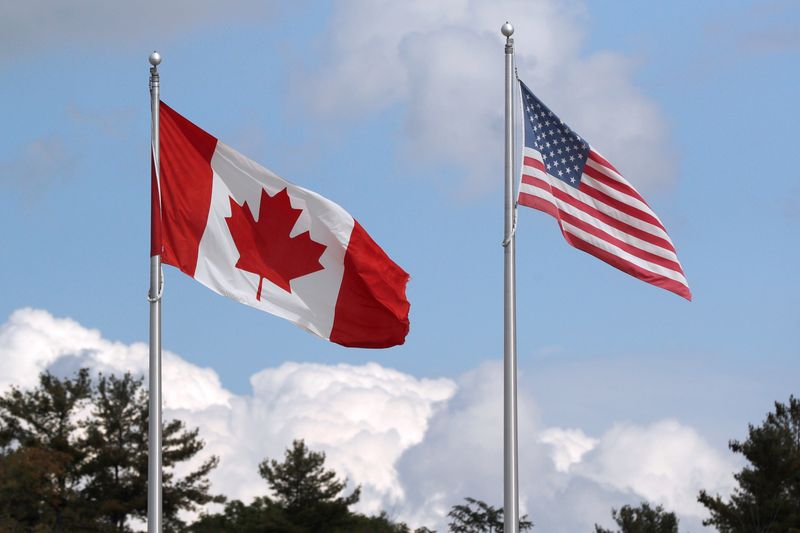By David Lawder
WASHINGTON (Reuters) – The U.S. has requested consultations with Canada to resolve trade disputes over the new tax on digital services, the Biden administration said on Friday, adding that the “discriminatory” tax appears to conflict with Canada’s obligations on the North American Trade Agreement area.
The Office of the U.S. Trade Representative said in a statement that it will work with Canada to resolve U.S. concerns about the new tax introduced in June through consultations. But if an agreement cannot be reached after 75 days, the country can request a dispute resolution panel under the US-Mexico-Canada Trade Agreement (USMCA).
The request for consultations is the first step in the USMCA’s dispute resolution process, which could ultimately lead to the imposition of retaliatory tariffs on imports from Canada.
In Ottawa, a Canadian government official said the U.S. move was not concerning or a surprise. The official, who requested anonymity due to the sensitivity of the subject, said the challenge was part of a conversation between the two nations.
The US government has repeatedly objected to the planned Canadian tax. The offices of Canadian Finance Minister Chrystia Freeland and Trade Minister Mary Ng were not immediately available for comment.
USTR had previously prepared retaliatory tariffs against seven other countries that imposed digital services taxes (DSTs) – Austria, Britain, France, India, Italy, Spain and Turkey – but these have been put on hold as global negotiations to redistribute tax rights to large, multinational companies. This shift was intended to replace daylight saving time, but those talks have stalled over technicalities.
USTR has found that unilateral taxes on digital services, largely aimed at collecting revenue from US tech giants such as Google, Apple (NASDAQ:), Amazon.com (NASDAQ:) and Alphabet’s Meta (NASDAQ:), are discriminatory are against American companies.

“The United States opposes unilateral taxes on digital services that discriminate against American companies. USTR is taking action today to address Canada’s discriminatory policies,” U.S. Trade Representative Katherine Tai said in a statement.
“As we continue these consultations, we will continue to support the Ministry of Finance in the OECD/G20 global tax negotiations to provide a comprehensive solution to the daylight saving time challenge,” Tai said.


